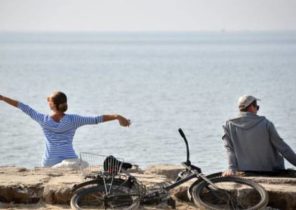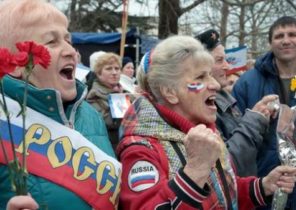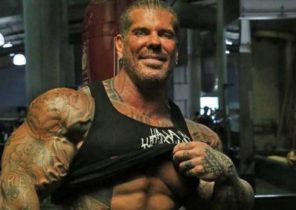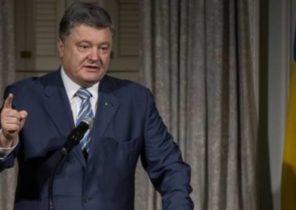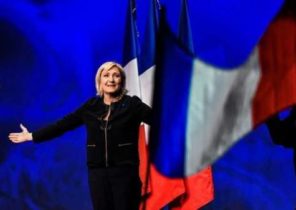
This week was not successful for those who aspire to cooperation and development of relations between the neighbouring countries Norway and Russia. Why frustrate all attempts to normalize relations after three years, when almost no contacts at the highest level?
First received a message from the Norwegian security police (PST) that it finds from Russia is a growing threat to the vital Norwegian interests in areas such as defence and organs of political decision makers.
Then the head of the security police Benedict Bernland (Benedicte Bjørnland) said that the Russian, using a variety of methods, primarily a hacking attack on the e-mail addresses, trying to get into the Norwegian society. And after just a few hours after that, it was reported that the Committee of the Storting on foreign policy and defense has canceled a planned visit to Russia.
Unwanted in Russia
Two members of the Committee Bård Vegar, Sliall, the representative of the Socialist left party, Trine Skei Grande, a spokeswoman for the left party, Venstre, was included in the list of undesirable for Russia. This was done because Norway has imposed sanctions against several Russian politicians. The sanctions were introduced after Russia in March 2014 annexed the Ukrainian Crimean Peninsula. And the head of the Committee Ms. Huitfeldt (Anniken Huitfeldt), the representative of the Labour party, not left to do nothing else but to cancel the visit.
This week the Norwegian intelligence service said the growing threat from Russia. The Norwegian foreign Minister visited Russia last more than three years ago. The only member of the government who dared to travel to the East, was a member of the Progress Party, Per Sandberg (Per Sandberg), which in June 2016 in St. Petersburg took part in the meeting on fisheries.
Many people ask yourself why it happened, and how to choose Norway and Russia to restore relations.
The visit of the Committee of the Storting on foreign policy and defense was planned long ago, and had high hopes that this might re-establish political contact between Norway and Russia.
Contacts at a lower level
During this period there was, of course, regular contacts between Norway and Russia, but political contacts were frozen. There were meetings of functionaries and meetings at a lower political level. And the Ministers of foreign Affairs børge Brende (Børge Brende) and Sergei Lavrov politely greeted each other at international meetings.
But the visit of the delegation of the Storting, consisting of five persons, headed by Ms. Huitfeldt was, however, something else. It was assumed that this visit could lay the Foundation for the participation of the Norwegian Minister of foreign Affairs at a major conference on the Arctic that Russia is going to be held in Arkhangelsk in late March.
The head of foreign policy Committee of the Federation Council Konstantin Kosachev visited Oslo in June 2016, at the head of the Russian political delegation. At that time the Russians decided not to send to Norway of people who were included in the list of undesirable persons, approved by the EU together with Norway, as a punishment for the fact that Russia annexed the Crimea.
According to participants of meetings held in Parliament, talks were held rigidly, but both sides felt that to maintain a dialogue is important. Kosachev, who, according to many, is one of those who shape Russian foreign policy, invited Ms. Huitfeldt and the Committee on foreign policy and defense to return the visit to Russia, and the visit was originally scheduled for autumn 2016.
The Russian “stop-list”
Then the Norwegian authorities did not know that there is a Russian “stop-list” Norwegian politicians — as a response to the fact that Norway joined the “black list” of the EU. It is not clear that the Russians have made this list, but based on the argument that later appeared, this apparently happened when Norway in August 2015, said that the sanctions also apply to Svalbard.
Shortly before that happened it was big news: April 19, 2015, Russian Deputy Prime Minister Dmitry Rogozin, made an intermediate landing in Longyearbyen on the way to the Russian scientific station at the North pole. Rogozin is one of the Russian politicians, listed in the sanctions list of the EU and Norway.
But on November 29 last year, the Norwegian Ministry of foreign Affairs received a response to its sanctions list — a list of people who are not allowed to enter Russia. This list was also Bård Vegar Cullell, and Trine Skei Grande.
“I won’t say why these two are listed,” — said at a press conference official representative of the foreign Ministry Maria Zakharova to the question NRK after it became known that such a list exists. She pointed out that the unproductive part of the diplomatic game they are playing Norway and the EU.
Political bomb
Thus, the Norwegian Ministry of foreign Affairs in late 2016 sat on a small political bomb. Planning the trip of the delegation of the Storting in Moscow has already begun, and, on the basis of normal diplomatic practice, the delegation had to be composed of persons representing both the government and the opposition.
The Ministry of foreign Affairs has received, thus, the political ball in their hands. It would gently inform the Storting that such a person should not be included in the delegation to avoid further problems in the already difficult relations with Russia. But then there would be a serious risk that this information gets to the press and thus reveal the existence of the Russian “stop-list”.
The alternative was an attempt to find a solution in the form of a compromise with the Russians that would allow Sullenly and Skei Grande to come to Russia to become aware of the existence of Norwegian politicians who are banned entry to Russia.
Feverish activity
In the next two months in Moscow and Oslo was a feverish activity in search of a compromise, because it was also about the participation of the Minister of foreign Affairs børge Brende in a prestigious Russian meeting in Archangelsk.
The Ministry of foreign Affairs of Russia is particularly hoped that this meeting will demonstrate the position of Russia to other countries with an interest in the Arctic; it was also planned that Vladimir Putin will take part in some sessions of this meeting.
The EU had previously shown flexibility in matters of participation in international meetings of persons entered in the sanctions list. For a long time it seemed that a compromise that would allow the Skei Grande and Sullenly to come to Moscow, it was possible to find.
However, the Norwegian side has never expressed the desire to completely remove from the sanctions list of the Russian Parliament, it was stressed that it is linked with the solution of the crisis in Ukraine.
A problem for the Norwegian authorities was also that although Skei Grande and Sliall probably would get a visa as part of the compromise, assured the Russian Ministry of foreign Affairs, however, there was no certainty that they would be allowed in Russia.
Stopped at the airport
Previously it happened that individuals with a valid visa was arrested at Moscow airport and sent back with the first plane — despite the fact that Russian diplomats did everything possible to allow them entry into the country.
Russia is a big country with many organs, each of which wants to say his word, and border control is in the hands of the powerful security service, the FSB. The Norwegian policy of the upper echelons of power without permission to cross the border in the transit lounge of Sheremetyevo airport in Moscow — it was a terrible scenario for Norwegian diplomacy, which really could plan for improving Norwegian-Russian relations.
“Norwegian authorities must now decide if they will issue a “stop list” or not,” — said the official representative of the foreign Ministry Maria Zakharova in an interview with NRK 3 Feb. So she threw the ball to the side of Norwegian authorities.
The appropriate Russian list of undesirable citizens of the EU have been published for a long time, but while Norway holds the list of their citizens. We know that the businessman Atle Berg (Atle Berge) and researcher at the Norwegian Institute of foreign policy, Wilhelmsen Julia (Julie Wilhelmsen) are among those who are denied entry, apparently for various reasons.
“Black lists”, however, has created severe climate, which at present, apparently no one can fix.
A small consolation
A small consolation for the Norwegian-Russian relations is the Norwegian band Wardruna, which weekend again attracted thousands of Russians in concert halls to sing their songs in old Norse. Statoil continues to cooperate with the Russian Rosneft, and last week the head of Statoil Eldar Satre visited Moscow to discuss the work of the Norwegian energy giant in the largest country in the world.
In the North, cooperation in fisheries and the organization of rescue operations continues as usual, the Norwegian coast guard reported that the number of Russian refugees along the coast of Northern Norway in 2016 halved compared to the previous year. All this happens without causing any sensations.
